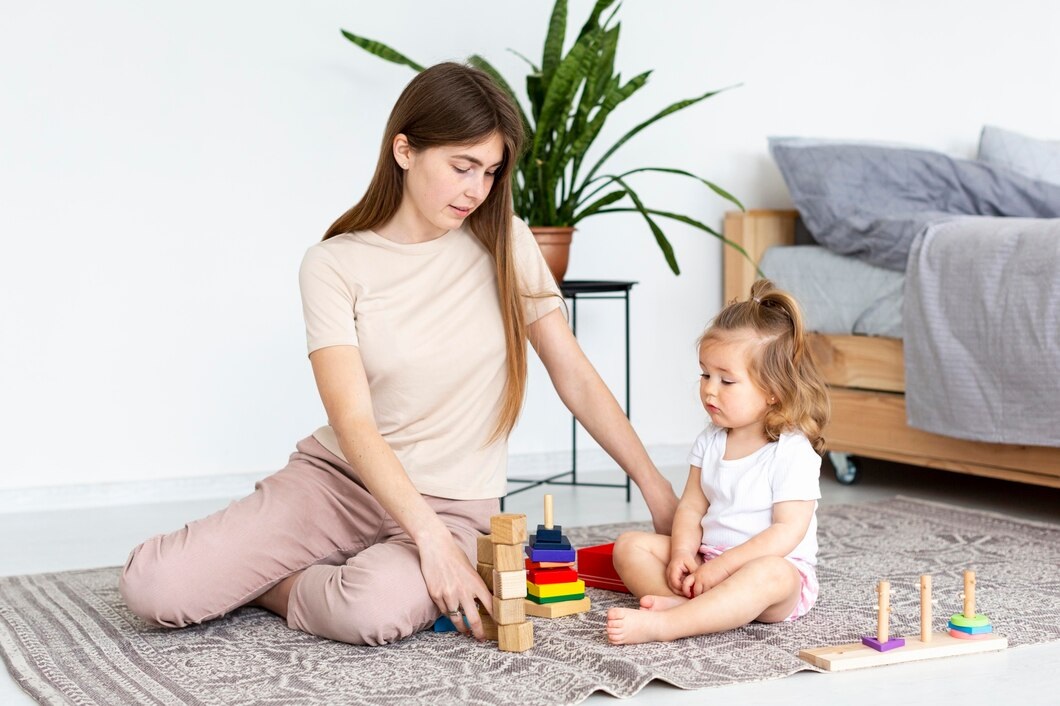Raising a child is a journey filled with joys, challenges, and countless learning opportunities. For parents seeking to enhance their child’s development at home, especially if they’re considering or currently engaging in paediatric occupational therapy services, there’s much that can be done to support growth and learning.
Here are six invaluable tips to create a nurturing environment that fosters your child’s development.
1. Create a Sensory-rich Environment
Children learn and develop through their senses. Integrating a variety of textures, sounds, and visual stimuli in your home can significantly stimulate their sensory development. This doesn’t mean you need expensive toys or gadgets; simple items like textured fabrics, musical instruments, and colourful art supplies can do wonders.
Encouraging sensory play helps in refining motor skills, enhancing cognitive development, and promoting emotional regulation.
2. Establish a Routine
Consistency and structure are key to creating a secure environment for your child. A predictable daily routine helps children feel safe and understand what’s expected of them.
This includes regular meal times, a consistent bedtime routine, and scheduled playtimes. Structure should not be rigid but flexible enough to adapt to your child’s needs, promoting a balance between guided activities and free play.
3. Encourage Physical Activity
Physical play is not just about fun; it’s crucial for health and development. Activities like running, jumping, and climbing help develop muscle strength, coordination, and balance.
They also provide opportunities for your child to learn about their body’s capabilities and limitations, fostering a sense of accomplishment and self-confidence. Incorporating outdoor play encourages a connection with nature and promotes overall well-being.
4. Foster Independence
From a young age, children are eager to do things on their own. Creating opportunities for them to practise self-care tasks, such as dressing, feeding, and tidying up, supports their independence and self-esteem.
Start with simple tasks, providing guidance and support as needed, and gradually increase the complexity as they grow more confident. This approach not only fosters independence but also teaches responsibility.
5. Implement Positive Reinforcement
Recognising and celebrating your child’s achievements, no matter how small, is vital in building their self-esteem and motivation. Positive reinforcement can be verbal praise, a hug, or a reward system for larger accomplishments.
It’s important to focus on the effort rather than the outcome, encouraging a growth mindset and resilience in the face of challenges.
6. Explore Local Paediatric Occupational Therapy Options
For children who may need additional support in their development, exploring paediatric occupational therapy near you can provide tailored strategies and interventions.
Occupational therapists specialise in helping children develop the skills necessary for daily activities, from fine motor skills for writing to social skills for interacting with peers.
Engaging with a professional can offer personalised advice and support, complementing your efforts at home.
Nurturing Your Child’s Development
Every child’s development is a unique journey, and as a parent, you play a pivotal role in guiding and supporting this journey. By creating a stimulating, structured, and supportive environment, you lay the foundation for your child’s growth and learning.
Remember, it’s important to focus on the effort rather than the outcome. To help you with this, learning on the topic about how to encourage resilience in the face of challenges can be a helpful tool. Together, you can navigate the challenges and celebrate the milestones, fostering a resilient, confident, and happy child.
